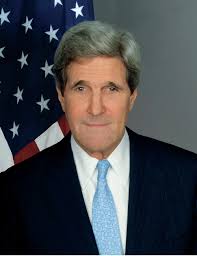The Significant Impact of John Kerry on Climate Change Policy

Introduction
John Kerry, a prominent American politician and diplomat, has played a crucial role in shaping international climate change policy. As the United States Special Presidential Envoy for Climate under President Joe Biden, Kerry’s work has become increasingly relevant amidst the ongoing global climate crisis. His efforts not only reflect the urgency of global environmental challenges but also highlight the U.S.’s renewed commitment to international cooperation in combating climate change, particularly following the turbulent years of the previous administration.
Recent Developments
In recent months, Kerry has been actively involved in high-level discussions and negotiations aimed at reducing global greenhouse gas emissions. His participation in the G20 summit in October 2023 was particularly significant as it brought together world leaders to solidify commitments to the Paris Agreement goals. Kerry has emphasized the need for enhanced carbon reduction targets and financial assistance for developing nations to implement sustainable practices.
During a recent conference in Paris, he highlighted that tackling climate change is not merely an environmental issue but one of economic and social justice, saying, “We must ensure that our solutions are equitably distributed to those who are most vulnerable to climate impacts.” His remarks reinforced the Biden administration’s stance of integrating social equity into climate policy, aiming to ensure no community is left behind in the transition to a green economy.
Kerry’s Diplomatic Efforts
Furthermore, Kerry’s diplomatic efforts have led to significant agreements on climate financing, particularly the commitment from wealthier nations to deliver $100 billion annually to developing countries by 2025. This funding is crucial for countries that are disproportionately affected by climate change and often lack the resources to mobilise effective response strategies.
Conclusion
In conclusion, John Kerry’s influence as a climate envoy goes beyond just national boundaries; it reflects a holistic approach to climate diplomacy that seeks collaboration over contention. As countries around the world face mounting pressures from climate impacts, Kerry’s ability to rally support and foster international agreements will be vital. His ongoing discussions and negotiations highlight the importance of sustained commitment to climate action, fostering hope that significant strides can be made in the coming years. For readers, understanding Kerry’s role provides insight into the complexities of climate diplomacy and the collective responsibility shared by nations in addressing one of the defining challenges of our time.









